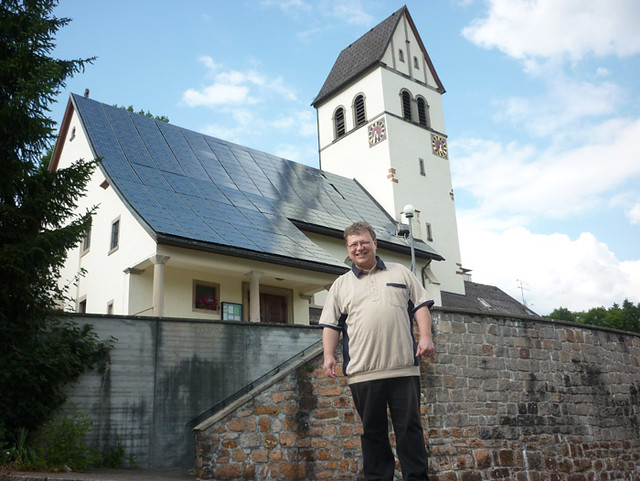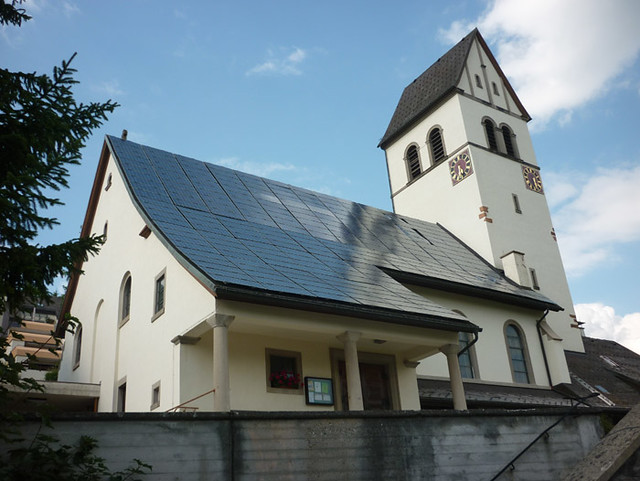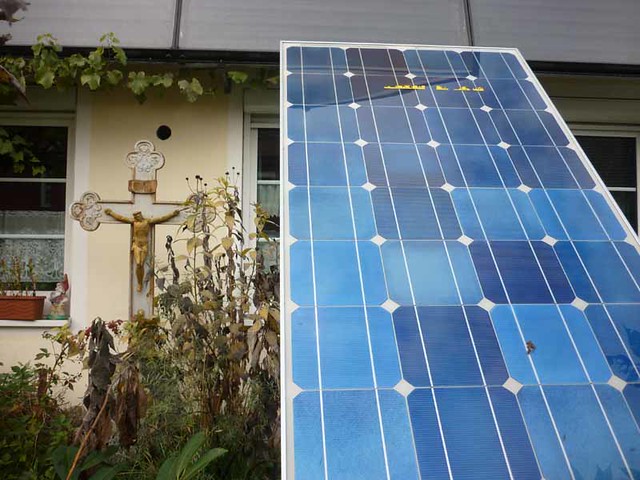The ever-wise Yogi Berra once quipped "It's like déjà vu all
over again," a truism applicable to a recent huge decision handed down
by the United States District Court for the District of Columbia.
 (Photo by Light Brigading / Flickr)
A story covered only by McClatchy News' Michael Doyle
(Photo by Light Brigading / Flickr)
A story covered only by McClatchy News' Michael Doyle, Judge Ketanji Brown Jackson
shot down Sierra Club and National Wildlife Federation's (NWF) request for an immediate injunction in constructing
Enbridge's Flanagan South tar sands pipeline in a 60-page ruling.
That 600-mile long, 600,000 barrels per day proposed line runs from
Flanagan, Illinois - located in the north central part of the state -
down to
Cushing, Oklahoma, dubbed the "pipeline crossroads of the world." The proposed
694-mile, 700,000 barrels per day
proposed Transcanada Keystone XL northern half also runs to Cushing
from Alberta, Canada and requires U.S. State Department approval, along
with President Barack Obama's approval.
Because Flanagan South is not a border-crossing line, it doesn't
require the State Department or Obama's approval. If Keystone XL's
northern half's permit is denied, Flanagan South - along with
Enbridge's proposal to expand its
Alberta Clipper pipeline,
approved by Obama's State Department during Congress' recess in August 2009 - would make up that half of the pipeline's capacity and then some.
"According to the government's position, no
oil pipeline would ever have to undergo an environmental analysis in the
United States, no matter how dangerous the project or how many federal
agencies are involved." - Sierra Club Attorney Doug Hayes
At issue in the District Court was the legality of the U.S. Army Corps of Engineers issuing a
Nationwide Permit 12 to shove through the Flanagan South (much
like the Appeals Court case covered here on DeSmogBlog just weeks ago with Transcanada's Keystone XL's southern half, rebranded the "
Gulf Coast Pipeline Project" by Transcanada).
Sierra Club and NWF argued for an injunction - or halt - in
constructing and pumping tar sands through Flanagan South until the
legality of issuing a Nationwide Permit 12 is decided, an issue still
awaiting the decision of
Judge Jackson.
Like the Keystone XL southern half case, Nationwide Permit 12 was used
instead of going through the National Environmental Policy Act (NEPA).
NEPA - unlike the fast-track Nationwide Permit 12 -
requires the EPA to issue a full draft Environmental Impact Statement
and final Environmental Impact Statement, with 1-2 month public
commenting periods following each Statement. EPA must take public
comments into account when making its final judgments on pipeline
projects.
Use of Nationwide Permit 12 has quickly become a "new normal" for
fast-track approval of tar sands pipelines and other controversial
domestic energy infrastructure projects.
Corporate Profits vs. Environmental Harms
Judge Jackson -
an Obama appointee with a
legal background predominantly in corporate law -
boiled down the competing parties' arguments into a "harms" balancing
test: Enbridge's corporate profits vs. irreparable environmental and
ecological harms Enbridge's Flanagan South may cause.
She wasted little time getting to the point, issuing her judgment
denying Sierra Club's and NWF's injunction request by the second
paragraph on the second page of the ruling. She then spent the next 58
pages giving in-depth legal justifications as to why.
"Plaintiffs have significantly overstated the breadth of federal
involvement in the pipeline project and have failed to establish
sufficiently that applicable federal statutes and regulations would
require the extensive environmental review process that Plaintiffs
seek," Jackson wrote. "Moreover, Plaintiffs have fallen short of
demonstrating that irreparable harm will result if the current
construction proceeds during the pendency of this litigation, and the
Court is not convinced that the balance of harms and public interest
factors weigh in Plaintiffs’ favor."
Flanagan Shrouded in Secrecy
One of the major grievances of Sierra Club and NWF had - like Sierra
Club had with the Army Corps of Engineers permitting for Keystone XL's
southern half - is that Nationwide Permit 12 generally deals with small
projects deemed "single and complete," usually half an acre in size or
less.
"When constructed, the FS Pipeline will cross approximately 1,950
wetlands or waters under the jurisdiction of the Corps—an area that, as
noted above, totals 13.68 miles," Jackson explained in outlining the
Plaintiffs' argument.
Thus, Enbridge received close to 2,000 Nationwide Permit 12's - all
"single and complete projects" - despite the fact it is one single
pipeline running from north central Illinois to Cushing, OK.
Sierra Club did a Freedom of Information Act request
to learn more about the scope and environmental impacts of Flanagan
South, only to see its requests denied by the Army Corps of Engineers,
first initially and then again after
its appeal.
Even though Nationwide Permit 12 doesn't include public hearings and
there were no public hearings for Flanagan South, Jackson argued to the
contrary.
"Notably, general permits—including the nationwide permit at issue
here— undergo a stringent pre-approval evaluation process that involves a
comprehensive environmental assessment under NEPA and also public
notice and comment," she wrote.
Yet it's the very lack of a public commenting period and lack of a
"comprehensive" environmental assessment that's at the crux of this
legal challenge by Sierra Club and NWF to begin with. From day one,
Flanagan South has been shrouded in secrecy.
"This project hasn't been on the public radar because it was
permitted behind closed doors without any public notice or process,"
explained Sierra Club attorney Doug Hayes in an interview with
DeSmogBlog. "Even our repeated FOIA requests for information about the project's impacts were denied."
"Most people we've talked to along the route have been shocked to
learn that a tar sands pipeline is being built in their backyards and
there was no NEPA process at all. No agency held any public hearings nor
allowed public comment."
Jackson Admits Fast-Track Name of Game
Even Judge Jackson admitted the whole point of Nationwide Permit 12
is to fast-track construction of pipelines and other related projects,
thus contradicting her earlier claims of the review for Flanagan South
being "comprehensive."
"The purpose of the statute that authorizes general permits such as
the nationwide permit at issue here is to allow the Corps to designate
certain construction projects...with little, if any, delay or
paperwork," Jackson wrote.
"In other words, the requisite comprehensive environmental review is
done upfront under the general permitting system precisely to avoid a
NEPA environmental review regarding certain projects that fit into
categories of activity that have been predetermined to have minimal
environmental impact. Therefore, once the Corps’s district engineers
verified that the discharges resulting from the FS Pipeline satisfied
NWP 12, no additional environmental review was required."
Jackson: "No Ultimate Environmental Effect"
Jackson made it crystal clear how seriously she takes the potential
ecological impacts of Flanagan South: not seriously at all. She went so
far as to call the environmental worries of Sierra Club and NWF "bald
allegations," reducing plaintiffs' environmental worries to fear of harm
to "flora and fauna."
"[N]otwithstanding Plaintiffs’ bald allegations of concrete injury to
flora and fauna, the record does not clearly establish that the FS
Pipeline construction will have a significant or substantial impact on
the wildlife in the pipeline’s path," opined Jackson.
"[T]he environmental impact of the pipeline construction may be
minimal, and the Corps has already verified that the seemingly
troublesome water crossings will have little or no ultimate
environmental effect...It is also apparent that Plaintiffs have
significantly overstated the certainty and imminence of some of the
injuries they predict."
Comparisons to other major tar sands pipeline spills - such as
Enbridge's "dilbit disaster" spill into Michigan's Kalamazoo River, the recent
ExxonMobil Mayflower, Arkansas spill and the
12 Transcanada original Keystone tar sands pipeline spills - all went unmentioned in Jackson's ruling.
"The Court acknowledges and accepts that some of the people who live
in areas near the pipeline project are sincerely worried about the harm
that an oil spill might cause," she wrote. "As genuine as these concerns
may be, Plaintiffs have not shown that a damaging oil spill is likely
to occur...In other words, the harms that an oil spill might potentially
someday cause—however fearsome—are not certain..."
Judge Johnson's argument flies in the face of the lived existence of one of Enbridge's
Steptoe & Johnson attorneys for the case,
David Coburn. He also serves as
legal counsel to Enbridge for its clean-up efforts in Michigan, the largest domestic tar sands spill in U.S. history.
Ruling: Corporate Profits Sacrosanct
After spending 55 pages trashing the Sierra Club/NWF legal arguments
and dismissing potential environmental impacts of Flanagan South
out-of-hand, Jackson then applies the corporate bottom line vs.
environmental harms balancing test.
"In the Court’s view, Enbridge...[has] the better of these
arguments," wrote Jackson. "With respect to the balance of harms, the
record as it currently stands shows that Enbridge has committed major
resources to the FS Pipeline project over the last 18 months, including
engaging in an intensive effort to comply with the myriad state and
federal environmental regulations that the pipeline project implicates.
The evidence of the time and effort that Enbridge has already put in to
the project lends credence to Enbridge’s argument that it will suffer
harm if the pipeline is indefinitely delayed."
Jackson then scoffs at the environmental harms caused by the pipeline, not even once mentioning climate change.
"Plaintiffs, by contrast, have failed to demonstrate the harms that
they allege with specificity in regard to the FS Pipeline in particular,
relying instead on general harms they have identified by analogizing
this project to other pipelines," she wrote. "While the Court is aware
of the potential negative environmental consequences that can accrue
from the construction and operation of a large oil pipeline, it is also
hesitant to weigh these possibilities too heavily without more evidence
linking them to this particular pipeline project."
What's Next?
Sierra Club and NWF have both yet to decide if they will appeal this
injunction ruling while they await a ruling on the legal merits of their
Nationwide Permit 12 challenge. If they do appeal it, the U.S. Circuit
Court of Appeals for the District of Columbia - often referred to as the
"DC Circuit" - will hear the case.
"We are disappointed with the ruling," remarked Hayes. "According to
the government's position, no oil pipeline would ever have to undergo an
environmental analysis in the United States, no matter how dangerous
the project or how many federal agencies are involved."
Debra Michaud - an activist with
Tar Sands Free Midwest,
a grassroots group developing a campaign to fend off Flanagan South -
says this decision will only further embolden area activists moving
forward.
"We are outraged. This decision, with its nationwide implications,
sets a dangerous precedent and legal justification to ram pipeline
projects through without any regard for landowner rights and
environmental regulations," she said. "Activists in the Chicago area are
calling for a nationwide campaign to fight this egregious abuse of
power."
_______________________
© 2013 DeSmogBlog.com









